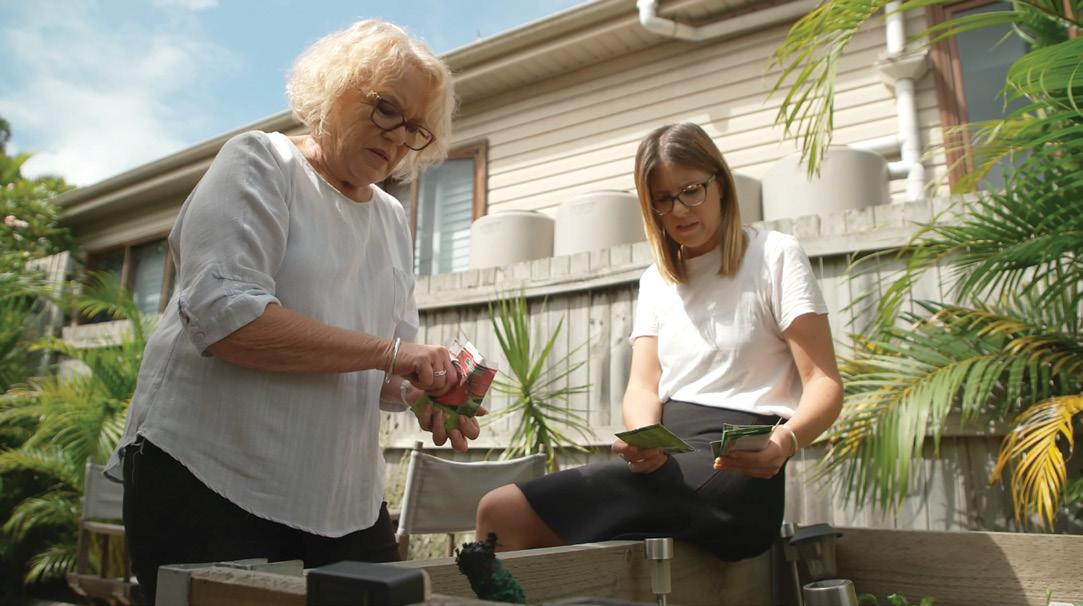
3 minute read
Do you have a Home Care Package?
By choosing to self-manage, you can join the many thousands of older Aussies using the Mable website to connect directly with independent support workers. Better still, you could get more hours of care by self-managing.
Working in partnership
Choosing to self-manage your own package doesn’t mean you are doing this all by yourself either. The provider you choose will assist you in receiving the correct care and services.
Your provider has an obligation to provide you with all the information you need to successfully self-manage your HCP and support you through the self-managing process.
You will work in partnership with your provider to decide how involved you want to be when it comes to managing your care.
This means you can set boundaries and expectations with your provider on what they should be covering and what tasks you will be organising. When considering self-management of your package, you need to consider whether you have the time and energy to undertake this role.
For instance, if you have been diagnosed with dementia, it may not be the best option for you. However, you can ask your partner or loved one to self-manage your package on your behalf.
It is important to keep in mind that some providers may have policies around self-management, so you should definitely shop around and enquire with providers about how they support clients who wish to self-manage their package.
Private home care
Rather than a Government funded service, you may choose a private home care provider and pay for services out of your own pocket.
Maybe this is more cost effective for you or there is a waitlist for the Government service you are trying to access.
Private home care services are arranged directly between you and the service provider. You pay for all the services provided and there is no Government subsidy.
Private home care organisations provide a wide variety of services including Registered Nurses for complex care needs and carers for companionship, personal care, housekeeping, cooking, and outings. They may also provide other types of staff, such as advisors, assistants, dietitians, drivers, personal trainers, physiotherapists, and occupational therapists.
There is no limit to the number of hours of care provided each week and you can generally increase or decrease the time as your requirements change. With an agreed notice period, you are not required to pay for shifts you do not require.
While private home care may seem expensive, you may find that it is more cost effective than other institutional alternatives. There is a wide variety in the level of quality and cost of home care companies.
When looking into home care services, here are some things to investigate and ask the provider you are considering:
Do they service your area?
Is the company Australian owned?
Is it independent or part of a franchise?
Do the owners / operators have experience in home care?
Does the company have appropriate insurance?
Does the company comply with Australian Tax Law, for example does it charge GST appropriately?
Do they provide documents about financial arrangements before service begins?
Do they have a Service Agreement? It is important so that there’s no misunderstanding about the service and cost to be provided.
Are they flexible? After all, it is all about you.
What are their recruitment processes?
Is there a criminal background check performed prior to employment with an agency?
Does the company provide worker’s compensation for employees? This is important so that you are not responsible for any injuries that occur on the job.
How do they determine appropriate staff for your needs? If a company asks where you live then offers you staff before even hearing about your needs, you can be reasonably assured they allocate based on location as a priority.
Is it possible to interview potential carers and make a selection after those interviews?
Do you get to decide what times and days suit your needs?
What is the minimum shift length?
Do they have male/female workers and can they cater for specific cultural backgrounds?
Who will be working in the home? Will there be regular staff providing continuity of care or do they change shifts around?
Is there a professional staff member, such as a Registered Nurse, who liaises with you to create a plan that meets your needs?
Who is the organisation’s main contact for you?
Do you meet a Manager / Owner and then never hear from them again?
What additional support is offered within the cost of your care? For example, are they available 24-hours a day, seven days a week.
You’ll find a list of In Home Care service providers from page 182 in this Guide or visit AgedCareGuide.com.au to find providers servicing your location.





